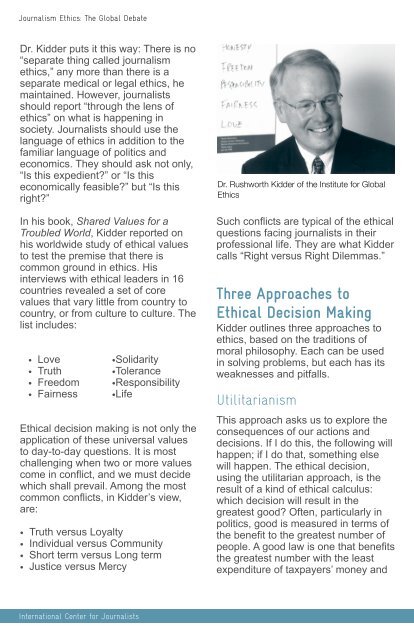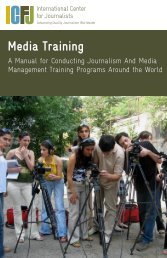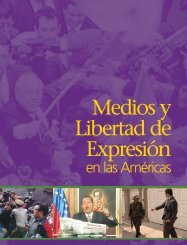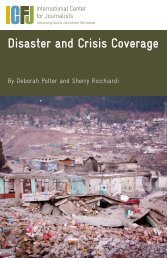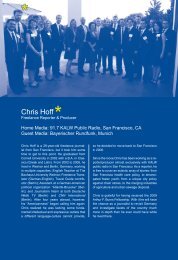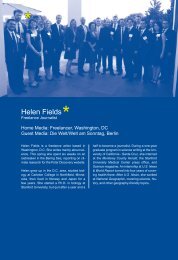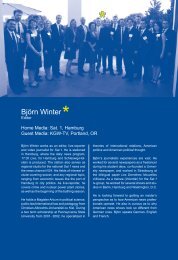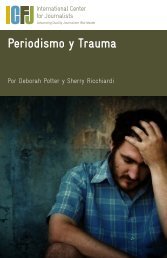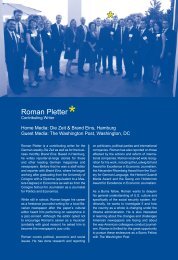Download PDF - International Center for Journalists
Download PDF - International Center for Journalists
Download PDF - International Center for Journalists
Create successful ePaper yourself
Turn your PDF publications into a flip-book with our unique Google optimized e-Paper software.
Journalism Ethics: The Global Debate<br />
Dr. Kidder puts it this way: There is no<br />
“separate thing called journalism<br />
ethics,” any more than there is a<br />
separate medical or legal ethics, he<br />
maintained. However, journalists<br />
should report “through the lens of<br />
ethics” on what is happening in<br />
society. <strong>Journalists</strong> should use the<br />
language of ethics in addition to the<br />
familiar language of politics and<br />
economics. They should ask not only,<br />
“Is this expedient?” or “Is this<br />
economically feasible?” but “Is this<br />
right?”<br />
In his book, Shared Values <strong>for</strong> a<br />
Troubled World, Kidder reported on<br />
his worldwide study of ethical values<br />
to test the premise that there is<br />
common ground in ethics. His<br />
interviews with ethical leaders in 16<br />
countries revealed a set of core<br />
values that vary little from country to<br />
country, or from culture to culture. The<br />
list includes:<br />
• Love<br />
• Truth<br />
• Freedom<br />
• Fairness<br />
•Solidarity<br />
•Tolerance<br />
•Responsibility<br />
•Life<br />
Ethical decision making is not only the<br />
application of these universal values<br />
to day-to-day questions. It is most<br />
challenging when two or more values<br />
come in conflict, and we must decide<br />
which shall prevail. Among the most<br />
common conflicts, in Kidder’s view,<br />
are:<br />
• Truth versus Loyalty<br />
• Individual versus Community<br />
• Short term versus Long term<br />
• Justice versus Mercy<br />
Dr. Rushworth Kidder of the Institute <strong>for</strong> Global<br />
Ethics<br />
Such conflicts are typical of the ethical<br />
questions facing journalists in their<br />
professional life. They are what Kidder<br />
calls “Right versus Right Dilemmas.”<br />
Three Approaches to<br />
Ethical Decision Making<br />
Kidder outlines three approaches to<br />
ethics, based on the traditions of<br />
moral philosophy. Each can be used<br />
in solving problems, but each has its<br />
weaknesses and pitfalls.<br />
Utilitarianism<br />
This approach asks us to explore the<br />
consequences of our actions and<br />
decisions. If I do this, the following will<br />
happen; if I do that, something else<br />
will happen. The ethical decision,<br />
using the utilitarian approach, is the<br />
result of a kind of ethical calculus:<br />
which decision will result in the<br />
greatest good? Often, particularly in<br />
politics, good is measured in terms of<br />
the benefit to the greatest number of<br />
people. A good law is one that benefits<br />
the greatest number with the least<br />
expenditure of taxpayers’ money and<br />
<strong>International</strong> <strong>Center</strong> <strong>for</strong> <strong>Journalists</strong>


